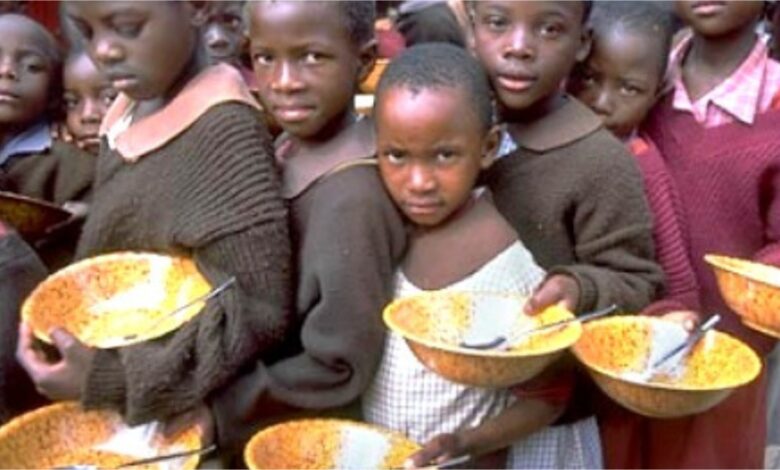UN lists Nigeria, 15 others among global food insecurity hotspots

The United Nations has raised alarm over a worsening food crisis in Nigeria and 15 other global hunger hotspots, warning that millions could face famine between November 2025 and May 2026.
The alert was contained in a joint publication titled “Hunger Hotspots: FAO/WFP Early Warnings on Acute Food Insecurity,” released by the Food and Agriculture Organization (FAO) and the World Food Programme (WFP).
In the latest assessment, the UN identified Afghanistan, the Democratic Republic of the Congo (DRC), Myanmar, Nigeria, Somalia, and Syria as countries of “very high concern,” while Haiti, Mali, Palestine, South Sudan, Sudan, and Yemen were placed in the category facing an immediate threat of catastrophic hunger, corresponding to the highest phase (IPC/CH Phase 5).
According to the report, the main triggers of food insecurity include armed conflicts, economic instability, and severe weather conditions. It also noted that dwindling humanitarian funding has intensified the crisis, leaving millions more vulnerable to starvation.
Additionally, Burkina Faso, Chad, Kenya, and the Rohingya refugee camps in Bangladesh were singled out as other high-risk zones in need of urgent international assistance.
The report revealed that, as of October 2025, only $10.5 billion of the required $29 billion for emergency food operations had been secured. This funding gap has forced aid agencies to implement drastic ration cuts and suspend essential nutrition and school feeding programs.
FAO further cautioned that without immediate financial support, essential agricultural aid—including seeds, livestock health interventions, and early farming assistance—will fail to reach affected communities in time for the next planting cycle.
FAO Director-General QU Dongyu urged world leaders to transition from crisis response to long-term prevention strategies. “We must move from reacting to crises to preventing them. Investing in livelihoods, resilience, and social protection before hunger peaks will save lives and resources. Famine prevention is not just a moral duty; it is a smart investment in long-term peace and stability,” he said.
Similarly, WFP Executive Director Cindy McCain warned that millions are on the brink of starvation if global action is delayed. “Mothers are skipping meals so their children can eat. Families are exhausting what little they have left as they struggle to survive. We urgently need new funding and unimpeded access. A failure to act now will drive further instability, migration, and conflict,” she said.
Both agencies jointly appealed for increased global commitment, enhanced funding for resilience-building, and unrestricted humanitarian access to conflict-hit regions. They stressed that famine can be both predicted and prevented, but only with political determination, timely intervention, and collective global effort.
The Hunger Hotspots report, released twice a year, forms part of the Global Network Against Food Crises initiative, financially supported by the European Union, to enhance early warning systems and coordinated responses to global food emergencies.





